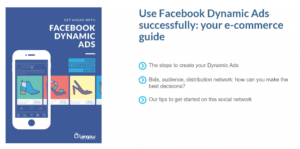Make the Most of the Back To School Period
18/08/16
4'
According to eMarketer, over 56 billion dollar’s worth of online sales were generated in USA during the 2015 Back to School period, representing 70.1% of Q3’s total online sales. This is not simply an American phenomenon; the Back to School period can be a lucrative time for retailers in any industry in any Western country.

According to a recent survey carried out by Deloitte, 44% of B2S (Back to School) shoppers now buy products online, compared with only 17% in 2010. This means that the internet is the second most popular place to buy B2S goods, second only to value department stores. Interested in benefitting from this profitable period? Here are our top tips.
Optimise Your Website
According to Scivisum, one of the biggest problems of the 2015 B2S period in UK was that many sites’ page delivery times slowed down when traffic increased (traffic hit a peak during the working week). Slow sites can turn away potential customers, especially parents who are low on time, so make sure your site is optimised so that the delivery time is the same during peak and off-peak times. One way of doing this is by removing superfluous components, keeping third party scripts like adverts, analytics and social media to a minimum.
Target University Students
When people talk about the Back to School period, they often forget about the older version: Back to University. Not only is the average basket value higher for these shoppers, as they are buying household items as well as traditional school products, but targeting this demographic can be a great way to create long-standing customer loyalty. Whereas parents tend to shop for Back to School products, the students themselves will shop for Back to University items. If you lock in these young consumers early with offers akin to Amazon’s Student Discount, you can create customer loyalty for years to come.

Sell on Marketplaces
Not only do marketplaces offer discounts such as the aforementioned Amazon Student Discount, but the majority of parents turn to marketplaces before consulting independent websites. The one-stop shopping that marketplaces provide appeals to parents thanks to its convenience; they can buy a range of products in one go, paying for one set of shipping with the promise of receiving said products in a given, trusted timeframe.
Remember the Power of Mobile
Marketplaces also let retailers enter the m-commerce sphere. M-commerce is on the rise, and 88% of adult B2S shoppers have smartphones. Parents are often rushed for time, so will consult mobile devices on the go to prepare for their shopping; indeed, the Deloitte survey revealed that 80% of B2S shoppers with smartphones use these devices when shopping.
What’s more, 90% of college students own mobiles, so if you are selling Back to University products, be it laptops or crockery, bedding or books, it is crucial you have a mobile-optimised site or app, or else sell on marketplaces which do.
Push Technology Products
According to AdWeek, the number one product category during the B2S period is technology. If you sell technological products, this is one of the best times to run campaigns and push sales. Even if you do not sell technological products, try and think of a link during this period to generate sales. For example, if you run a customising site, advertise your customised phone cases. Likewise, if you sell bags, try selling laptop bags during this time to appeal to B2S shoppers.

Use Social Media Campaigns
One of the best ways to advertise these campaigns is using social media. Firstly, the majority of university students use social media regularly, so it is a great way to build client rapport. Social networks also give retailers the option to use paid campaigns, like Facebook Dynamic Ads. Create a Facebook Dynamic Ads campaign with a lookalike audience so you can reach new customers during the B2S period using geographic, demographic or interest targeting.
Even if your products are not strictly related to school/university, make the most of this time to create a new campaign. For example, if you sell jewellery, why not send a tweet like ‘Now the children are back at school, it’s time to treat yourself. Check out our latest range at…’?
Youtube is also a great social media channel to use, as four times as many customers prefer product videos to product descriptions, and 22% of 18-24 year olds say that Youtube videos influence their buying behaviour.
With a range of different retail periods during the year, it can be difficult to adapt your e-commerce campaigns accordingly. With Lengow, you can centralise all of your campaigns into one solution. Request a free demo today!
To find out more about Facebook Dynamic Ads,
Your e-commerce library
Clarins x NetMonitor Success Story
Learn moreSuccess on Marketplaces
Learn moreCompetitive Intelligence
Learn moreSign up for our newsletter
By submitting this form you authorize Lengow to process your data for the purpose of sending you Lengow newsletters . You have the right to access, rectify and delete this data, to oppose its processing, to limit its use, to render it portable and to define the guidelines relating to its fate in the event of death. You can exercise these rights at any time by writing to dpo@lengow.com

Trending Posts
Marketplaces
The Top 10 Marketplaces in Europe (2026)
The e-commerce scene is a vibrant mix of marketplaces in Europe. These aren't just websites; they're bustling hubs where millions…
02/01/26
8'
Marketing channels
ChatGPT Ads and advertising on GenAI Search Engines: what you need to know
Advertising on generative AI-based search engines (GenAI) marks a new era in digital marketing. After two decades dominated by traditional…
18/01/26
8'
Marketplaces
The French Marketplace Landscape: What Brands Need to Know
France has quietly become Europe's marketplace laboratory. Lengow's exclusive ranking reveals why traditional retailers, not tech giants, dominate the game.…
08/01/26
6'
E-commerce Trends
Google’s Universal Commerce Protocol: The End of E-Commerce as We Know It?
On January 11, 2026, at the NRF Retail's Big Show in New York, Google unveiled the Universal Commerce Protocol (UCP),…
16/01/26
6'
Marketing channels
What the World Is Unboxing on TikTok and Instagram (Haul & Unboxing Index 2025)
Opening a package on camera has become much more than simple entertainment. In 2026, "haul" and "unboxing" videos serve as…
20/01/26
7'





